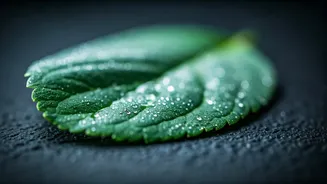Discover the secrets of thriving in urban gardening! Learn 6 essential tips for success in cultivating your green haven
Essential Tips for Thriving in Urban Gardening You Can't Afford to Miss!
Urban gardening:
bring nature into city life with ease
Folks, city life can be quite a grind, isn't it? Between the traffic, the noise, and the concrete jungle, it's easy to feel disconnected from nature. But what if I told you there's a way to bring a slice of the countryside right into your own home? Yes, I'm talking about urban gardening!
It’s not just a hobby, it’s a way to de-stress, eat healthier, and add a touch of green to your surroundings, even if you’ve only got a tiny balcony or a sunny windowsill. Let's explore some essential tips to help you cultivate your own little green haven.
Choose the right spot for your plants to thrive
Choosing the right spot is the first and most important step, boss! Before you even think about seeds or soil, observe where the sun shines in your space. Most vegetables and herbs need at least six hours of sunlight daily.
If your balcony faces north and gets very little direct sunlight, you will need plants which can flourish on less sunlight. Consider using grow lights or selecting plants that thrive in partial shade, like lettuce, spinach, or mint. Also check which direction the wind is blowing.
Strong winds can dry out your plants faster and damage them. Consider installing a windbreak if needed. The kind of spot decides if you get good or bad vegetables.
Containers and soil crucial for plant growth. Choose wisely
Next decision to be made is about containers and soil. Now, you don’t need a sprawling garden to grow your own food. Pots, planters, even old buckets can be perfect homes for your plants! Just make sure they have drainage holes to prevent waterlogging, which can rot the roots.
When it comes to soil, don’t just grab any old dirt from your backyard. Invest in good-quality potting mix, which is light, airy, and drains well. You can even make your own by mixing compost, coco peat, and vermicompost.
Remember, your plants need good food, so make sure you are making the right decision regarding the soil. Different plants need different types of soil. Some may flourish with acidic soil and others with alkaline soil.
Watering plants properly is an art to master for plant health
Watering is more than just pouring water, it involves many things. Getting the watering right is an art in itself! Overwatering can be as harmful as underwatering. Check the soil moisture before you water – stick your finger about an inch deep. If it feels dry, it's time to water.
Water deeply, until the water drains out of the bottom of the pot. Avoid watering the leaves, as this can encourage fungal diseases. The best time to water is early in the morning or late in the evening, when the sun isn't too strong. Always check how the weather is and water accordingly.
During monsoon, you may not need to water your plants as often, but during summer, you may need to water more than once a day!
Plants need nutrients for growth; use organic fertilizers wisely
Fertilising is an important part of this procedure. Plants need food, too! Just like we need vitamins and minerals, plants need nutrients to grow strong and healthy. You can use organic fertilizers like compost tea, vermicompost, or even diluted cow manure (if you can get your hands on it!).
Avoid using chemical fertilizers, as they can harm the soil and your plants in the long run. Fertilize your plants regularly, especially during the growing season. You can also use foliar feeding, where you spray diluted fertilizer directly onto the leaves.
Keep a careful watch on your plants so that you know how much to fertilze them.
Monitor plants for pests, diseases, use organic solutions, maintain cleanliness
Pest and disease control is like the doctor of your plants! Keep a close eye on your plants for any signs of pests or diseases. Common urban garden pests include aphids, mealybugs, and spider mites. You can control them with organic solutions like neem oil spray or insecticidal soap.
Remove any diseased leaves or plants immediately to prevent the spread of infection. Prevention is always better than cure, so keep your garden clean and tidy.
Also ensure that you are sanitising your scissors or tools before snipping off leaves from one place to another, so you dont have to worry about spreading infections.
Choosing the right plants for urban gardening is an art - select climate-suited varieties & start small
Finally, selecting the right plants is also an art! Not all plants are created equal, especially when it comes to urban gardening. Choose varieties that are well-suited to your climate and the amount of space you have.
Herbs like basil, mint, and rosemary are easy to grow in pots, as are vegetables like tomatoes, peppers, and eggplant. Leafy greens like lettuce, spinach, and kale are also great choices for small spaces.
Start with a few easy-to-grow plants and gradually expand your garden as you gain more experience. Also check about the amount of water they require, and pick up plants of similar varieties. So happy gardening!
AI Generated Content. Glance/InMobi shall have no liability for the content














